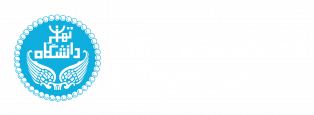Pioneering Contributions of an Iranian Researcher in Advancing Novel Cancer Diagnosis and Treatment Technologie

In 2017 (1396 in the Iranian calendar), Dr. Abdolahad designed the first “Cancer Diagnostic Probe (CDP)”, a novel device intended for treating superficial tumors that are inoperable or resistant to radiotherapy. This invention not only offered a new therapeutic option but also introduced a groundbreaking theoretical model in the field of cancer diagnostics.
He also developed an “electrochemotherapy system” designed to enhance drug delivery and reduce pain in cancer patients. This approach has proven especially effective for individuals who are not candidates for surgery or who do not respond to conventional therapies. To date, the system has been successfully used to treat more than 1,500 patients, demonstrating both clinical feasibility and therapeutic promise.
During the COVID-19 pandemic, Dr. Abdolahad responded swiftly to national healthcare needs by designing a device capable of detecting “reactive oxygen species (ROS)” in the lungs, a critical biomarker in respiratory distress. This technology was rapidly adopted in medical centers and contributed to the timely diagnosis of COVID-related complications.
He is currently leading research on the development of an “implantable electronic chip” for cancer treatment. Preliminary animal trials have yielded promising results, suggesting the potential of this innovation to transform oncological care and personalized therapy in the near future.
Dr. Abdolahad’s pioneering work has earned him widespread national and international recognition. His honors include the “Avicenna Award” (2014), the “World Intellectual Property Organization (WIPO) Award for Best Inventor” (2016), two “Kharazmi Awards” (2017 and 2024), the prestigious “Mustafa Prize” (2019), Iran’s “Top Researcher Award” (2023), and the “Razi Medical Sciences Award” (2025). He also holds more than “45 approved research grants from the United States”. Dr. Abdolahad emphasizes that scientific success is rooted in sustained effort and adherence to ethical research practices, and he remains committed to the principl that the ultimate goal of science is to serve society.

Your Comment :